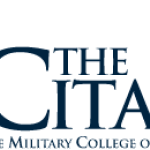- Industry: Education
- Number of terms: 941
- Number of blossaries: 0
- Company Profile:
A subsidiary or subordinate or parallel plot in a play or story that coexists with the main plot.
Industry:Literature
An object or action in a literary work that means more than itself, that stands for something beyond itself.
Industry:Literature
A set of conflicts and crises that constitute the part of a play's or story's plot leading up to the climax. See Climax, Denouement, and Plot.
Industry:Literature
A literary work that criticizes human misconduct and ridicules vices, stupidities, and follies.
Industry:Literature
The point at which a character understands his or her situation as it really is.
Industry:Literature
The sorting out or unraveling of a plot at the end of a play, novel, or story. See Plot.
Industry:Literature
The point at which the action of the plot turns in an unexpected direction for the protagonist. See Recognition and also Irony.
Industry:Literature
The angle of vision from which a story is narrated. See Narrator. A work's point of view can be: first person, in which the narrator is a character or an observer, respectively; objective, in which the narrator knows or appears to know no more than the reader; omniscient, in which the narrator knows everything about the characters; and limited omniscient, which allows the narrator to know some things about the characters but not everything.
Industry:Literature
The unified structure of incidents in a literary work. See Conflict, Climax, Denouement, and Flashback.
Industry:Literature
